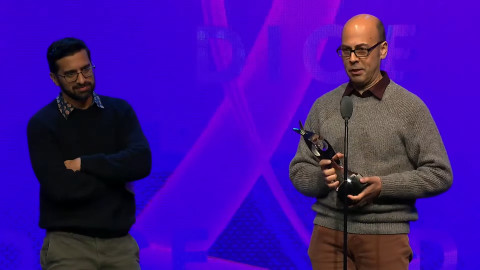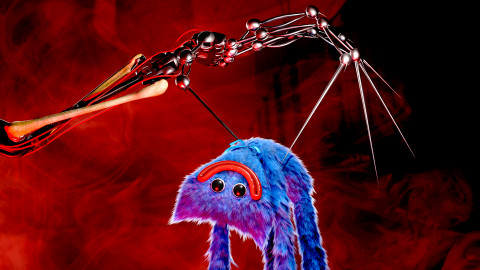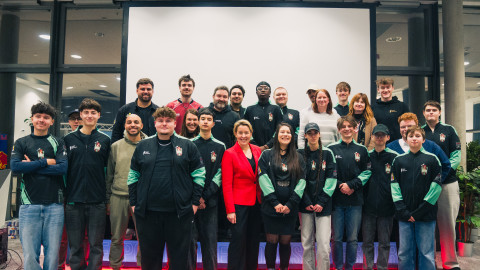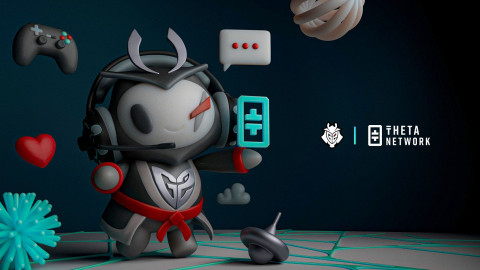
“Yes, there are a number of high end groups out there, tight knit guilds that have harmoniously awarded loot over the years . . . but what group and master loot often mean for many people is that they are at the mercy of others in ways that often aren’t fair,” said Ian Hazzikostas, the game director behind World of Warcraft, during a Developer Q&A back in April of this year. Master loot, players had recently discovered, was to be removed in patch 8.0.1 in preparation for Battle for Azeroth.
As per usual, this change was made under the banner of what is “fair” -- master loot, Hazzikostas explained, unfairly leaves players (and especially trial raiders) at the mercy of others. Everyone deserves loot for killing a boss, he went on to say, and personal loot would allow players more control over their fates.
He pointed out that personal loot has been the default in 5-man dungeons for numerous expansions, fortuitously forgetting the discrepancy in gear quality and prestige level between dungeons and raids, and added that if the change just so happened to discourage Cutting Edge guilds from split running then, well, Blizzard wasn’t complaining.

In the world of pick-up groups (PUGs), personal loot is a no-brainer because individual rewards are congruent with the notion of personal progression. There is no sense of allegiance or community in a PUG, no concept of “raid progression” or “the good of the team” -- there are only item levels, achievements, and solo adventures with ever-changing groups of strangers who are always searching for a premade with a higher average item level than the last in the vain hope of brute forcing one’s way through various bosses.
And so when considering that selfish, single-player approach to the game, personal loot makes sense; thinking everyone who is present for a boss kill deserves loot makes sense. But when players choose to commit to a raid team, they are making the conscious, consenting decision to prioritize guild progression over personal progression, and Blizzard’s enforcement of a loot system that is the very antithesis of collaboration only robs players of the opportunity to choose team over self.
Fourteen years into the game, dictating how guilds distribute loot because of fears of loot council tyranny and trial player abuse is, quite frankly, infantilizing and insulting. Despite what Hazzikostas’ comments regarding players being left at the “mercy” of others would imply, no player is held captive by a guild’s loot system. Players have the autonomy and good sense to align themselves with a guild whose leadership they approve of, and should the tide turn, they have the freedom to /gquit as well.
"...increasing player agency via mass enforcement of a purely RNG-based loot
system is something of an oxymoron,"
Most perplexing of all, this change came at a point in World of Warcraft’s storied history in which pugging content is more viable and common than ever. Consequently, the removal of master loot serves only to punish those players who choose to commit to raid teams because they offer both community and a sense of team progression. Involuntary personal loot undermines the former and throttles the latter.
In a guild setting, personal loot penalizes progression by preventing upgrades from reaching guild members who need them most. Instead, gear can simply go to waste, unusable by its recipient due to stats or effects and untradeable due to item level. Rather than ending a raid week with zero personal upgrades but the knowledge that the raid team is stronger and better prepared for future content, it is now possible for a raid team to miss out on upgrades simply because gear landed in the wrong hands.
It has become abundantly clear that increasing player agency via mass enforcement of a purely RNG-based loot system is something of an oxymoron. Although gear drops are inherently random, master loot offered a buffer between the algorithm and the players, a chance to control the recipients of randomly dropped items, and that buffer tempered frustrations with an otherwise uncontrollable loot system.
That buffer is now gone, and between involuntary personal loot, caches, and world quests that reward random item level gear, feelings of player impotence and insignificance are at an all-time high. All players, even those outside of the dog-eat-dog world of PUG content, are now beholden to three levels of RNG when it comes to gearing: if the gear drops; who the gear drops for; and, what item level (and/or sockets) the gear has.
"...above all else, it is most unfortunate that there is nowhere left to hide from
World of Warcraft’s encroaching culture of personal progression,"
Internal guild structures that once rewarded individual skill, contribution, and commitment have been reduced to smithereens. In practice, the rules surrounding gear trading are too restrictive to establish and enforce a precedent and if they were any looser, then we might as well revert to master loot.
And so the guy who is half an hour late to every raid; the guy who dies in the first minute of every fight; the guy who is just filling in on an alt for the night -- they are all just as likely to receive the best gear as the most dedicated, most valuable member of the team. Now more than ever, player skill is of secondary significance, even in one’s guild runs; the best players are simply those with the best luck.
A handful of other issues surrounding personal loot have been discussed at length. Early on, despite Hazzikostas’ protestations, players blamed the change on Blizzard’s desire to prevent Mythic progression guilds from split running (as we have seen with Uldir, split raids still happen). Hardcore raiders readily dismissed accusations of trial raider abuse, and ninja looting in PUGs is a solved, albeit mildly annoying, problem.
But rehashing those arguments would be a waste of breath. At the end of the day, above all else, it is most unfortunate that there is nowhere left to hide from World of Warcraft’s encroaching culture of personal progression. Unlike in the game’s earlier iterations, socialization is simply unnecessary in Battle for Azeroth because end-game content is so heavily centered on solo tasks and rewards.

The shift away from community has been gradual and in hindsight, players should have seen this coming. Garrisons, added in Warlords of Draenor, were the tip of the iceberg; mythic caches and gear drops from follower missions randomly rewarded players for their solo adventures, and then in Legion, gear upgrades via one-man world quest content became the norm.
LFR, LFG, and the ease of creating PUGs via group finder and other addons contributed throughout the years. There may be two other players in one’s Island Expedition queue or 19 others in their PUG Heroic Uldir group, but in reality, players are going through the motions alone and with a single-minded focus on their own progression.
“I know consistent systems makes content creation easier and faster, but when you over-systemize the game it removes diversity from the game's experience [and] it makes for a less social player experience,” wrote “Blooblahguy,” the raid leader of Big Dumb Guild (US-Illidan), one of the top Mythic progression guilds in the world, during this week’s developer Reddit AMA.
“It makes the choices between guilds less distinct, the connections with other players less impactful, the world less immersive, and makes communities less likely to form organically. … I think next expansion warrants a re-evaluation of nearly every PvE system currently in place.”
"...small incentives that push even the most anti-social and isolated players to engage
in World of Warcraft’s social elements are important,"
In Legion, addons that allowed players to auto-join groups for quick world quest completion were widely used and so when it came to Battle for Azeroth, developers attempted to disable them. These addons, they argued, created an a-social gaming experience and, consequently, players who formed groups organically were not being adequately rewarded for engaging in the game’s social element.
Except then they removed master loot entirely and with it, the last tangible incentive for the average player to join a raiding guild.
Raiding guilds have always been World of Warcraft’s primary source of community and socialization, and as the rest of the game is steadily consumed by solo and easily pugged content, they bear that responsibility now more than ever. Committing to and raiding with a guild week in and week out has never been easy, but it was always worthwhile, if only for the aforementioned modicum of control over an uncontrollable system.
But now there is little distinction between PUG raiding and guild raiding, especially for new and returning players who often find themselves playing alone, and although they may seem negligible, small incentives that push even the most anti-social and isolated players to engage in World of Warcraft’s social elements are important.
Community-building is fundamental to any game’s success, but especially an MMO-RPG’s, and players must first have reason to seek out lasting connections with others before they can be expected to become social for the sake of being social. For now, World of Warcraft, a game whose bedrock was once community, can be played in isolation without repercussions.
Sort by:
Comments :0






